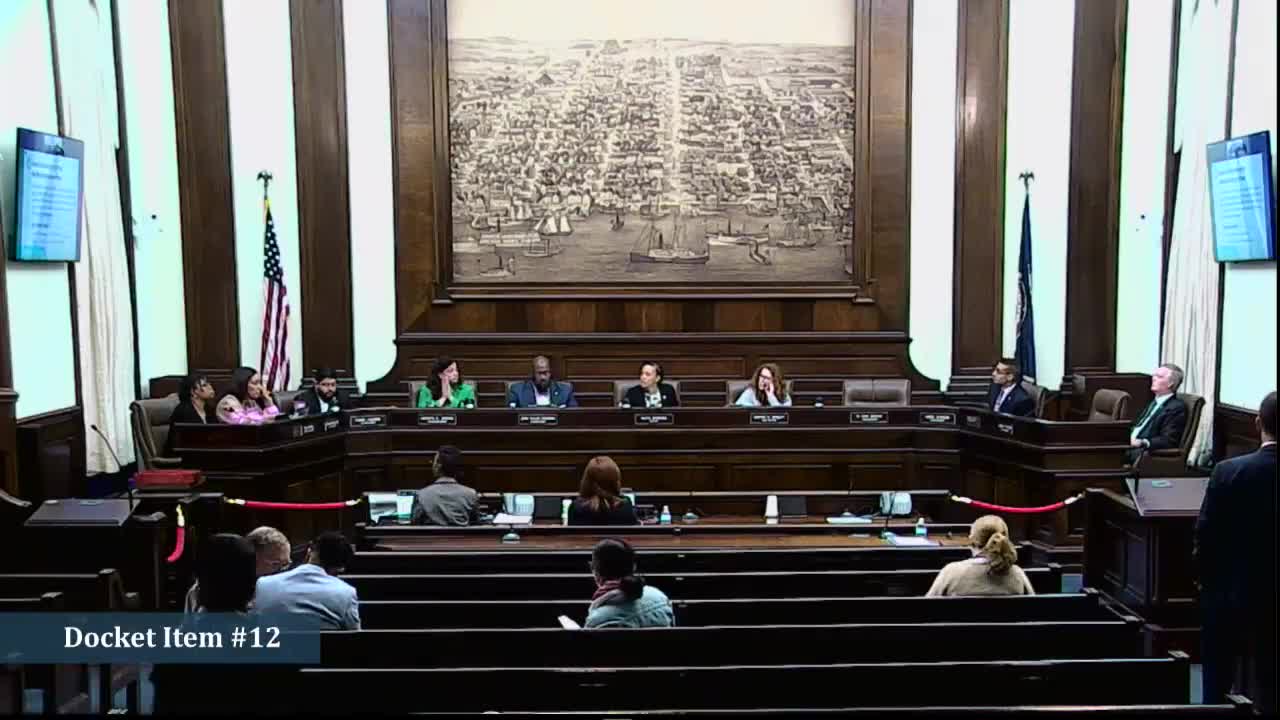Council adopts revised police‑oversight ordinance; limits on subpoenas and impasse process draw debate
Get AI-powered insights, summaries, and transcripts
Subscribe
Summary
The Alexandria City Council voted 5‑2 on Saturday to adopt revisions to the Independent Policing Auditor and Independent Community Policy Review Board ordinance, adding a public impasse process and authorizing the auditor to seek court subpoenas for documents but not to compel individual witness testimony.
The Alexandria City Council voted 5‑2 on Saturday to adopt revisions to the city’s ordinance establishing an Independent Policing Auditor and the Independent Community Policy Review Board (ICPRB), setting out a public impasse process and authorizing the auditor to seek subpoena duces tecum for documents but not to compel individual testimony.
Council members Vice Mayor Bagley and Councilman Aguirre led a subcommittee that met publicly with stakeholders and the auditor’s office to draft the compromise language that came before the council. The subcommittee recommended a pathway for resolving disagreements when the auditor declines to investigate and the board disagrees: the board may take a vote and forward the matter to the city council, which would then direct the auditor (a council‑hired employee) whether to undertake or not undertake the investigation. Council described the change as a way to preserve the auditor’s independence while creating a formal, public check when the board and the auditor reach an impasse.
On subpoena power, the ordinance adopted language allowing the auditor, after attempting voluntary production, to apply to the Alexandria Circuit Court for a subpoena duces tecum to compel production of books, papers and other evidence. Council discussion and community testimony focused on whether subpoena power should extend to compelling individual testimony and whether subpoenas would be practical given constitutional protections for officers (the Garrity line of cases) and the likelihood that subpoenas would be legally contested.
Auditor staff and outside advocates argued that full subpoena authority (including calling witnesses) is a best practice used by many civilian oversight bodies and can be critical for thorough investigations. The chair of the ICPRB, Christopher Lewis, and other board members submitted a written letter and testified that the board opposes narrowing subpoena power and urged council to keep full subpoena authority so the board and auditor can compel witnesses and preserve independent investigatory capacity.
City staff, the city attorney and some council members said they prefer an MOU‑based approach and that document subpoenas are the most useful and practical tool for oversight: court‑ordered subpoenas for documents will yield unredacted evidence (body‑worn camera footage, surveillance, photographs, contemporaneous records) while subpoenas for witness testimony would likely trigger immediate legal challenges and not produce additional information because officers may invoke Garrity protections and counsel, prolonging court proceedings.
Public testimony before the vote was sharply divided. Board members and civil‑rights advocates urged full investigatory powers and warned that narrowing the auditor’s tools would hamstring oversight. Other speakers urged caution about subpoenas, raised concerns about litigation costs and defended a more incremental start with MOU and monitoring first. After debate, the council adopted the subcommittee’s compromise and directed staff to return with implementation details; the final vote was 5 in favor and 2 opposed.
Votes at a glance: The council approved the ordinance revisions on second reading (roll call 5‑2). Council members El Nuby and Green voted nay; the motion passed. Council members asked the auditor and staff to report back on implementation, and council asked for a follow‑up report in one year that will include usage of any subpoenas and other implementation metrics.
What it means: The city now has an implemented oversight structure with a public impasse mechanism and limited court‑ordered subpoena authority for documents. The decision responds to stakeholder concerns while keeping the final responsibility with elected council to resolve conflicts over investigatory starts. Opponents called the compromise a shortcoming; supporters said it gets the board and auditor into operation while preserving options for future adjustments.
